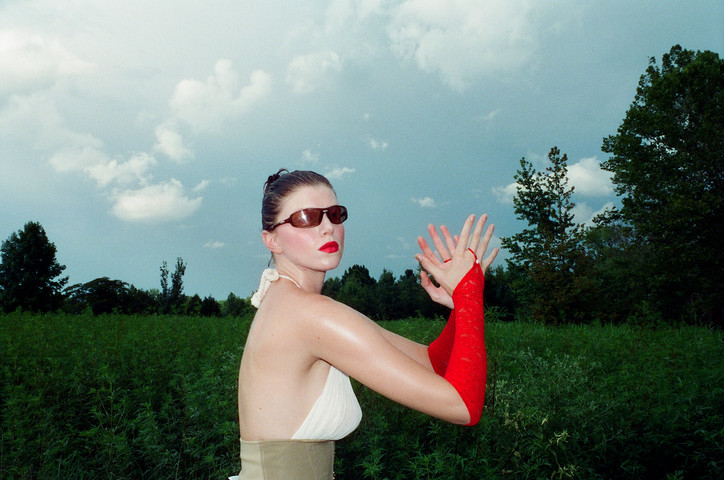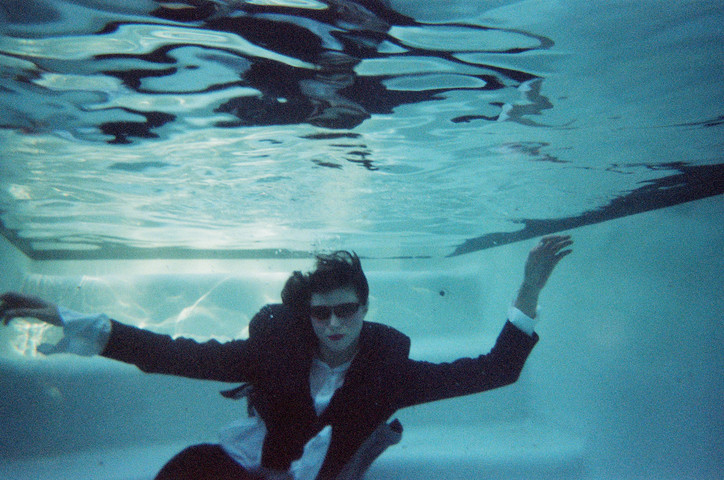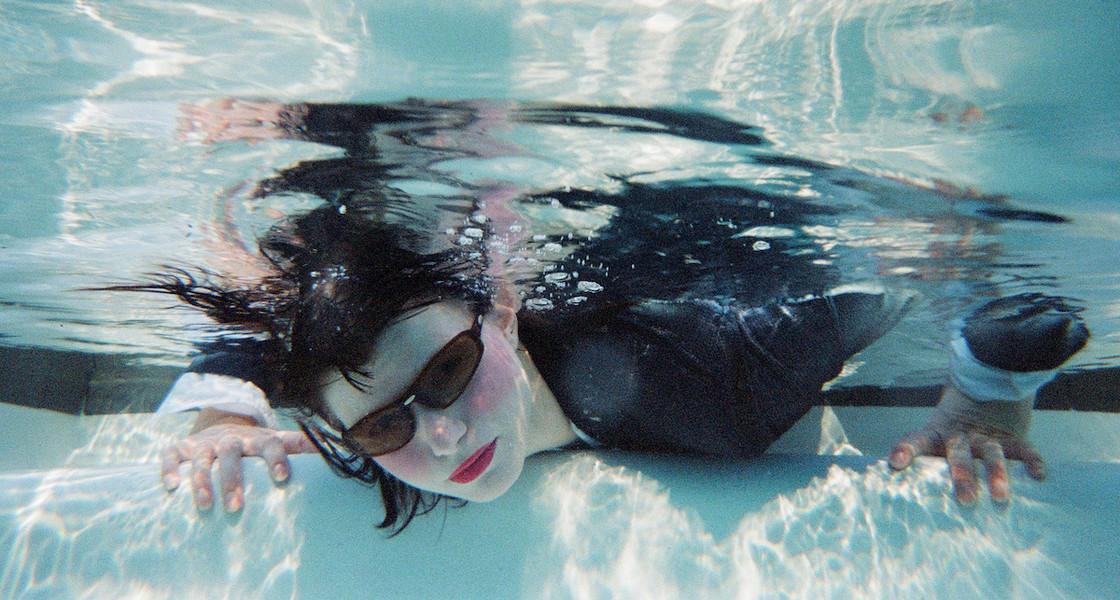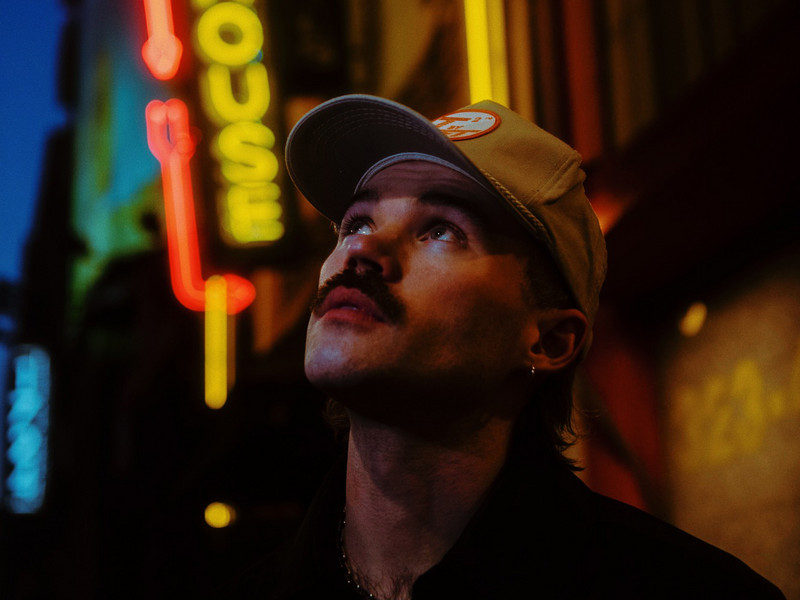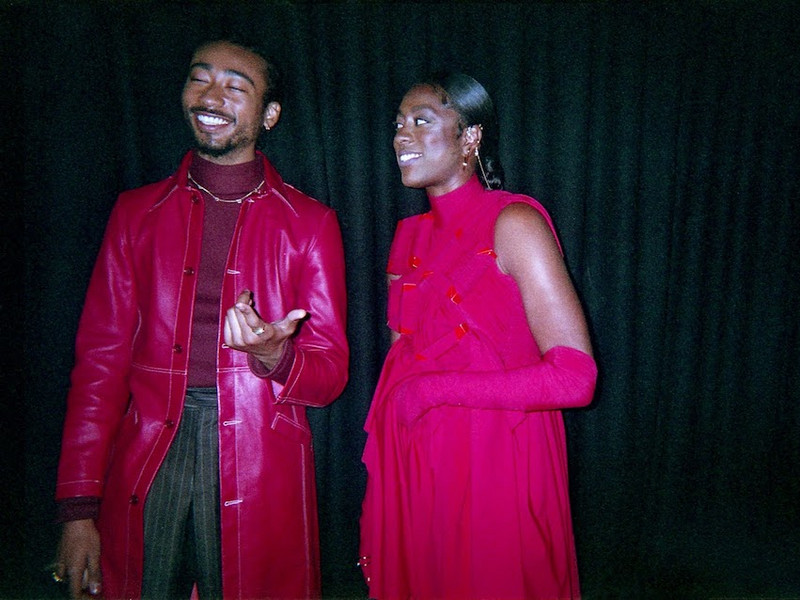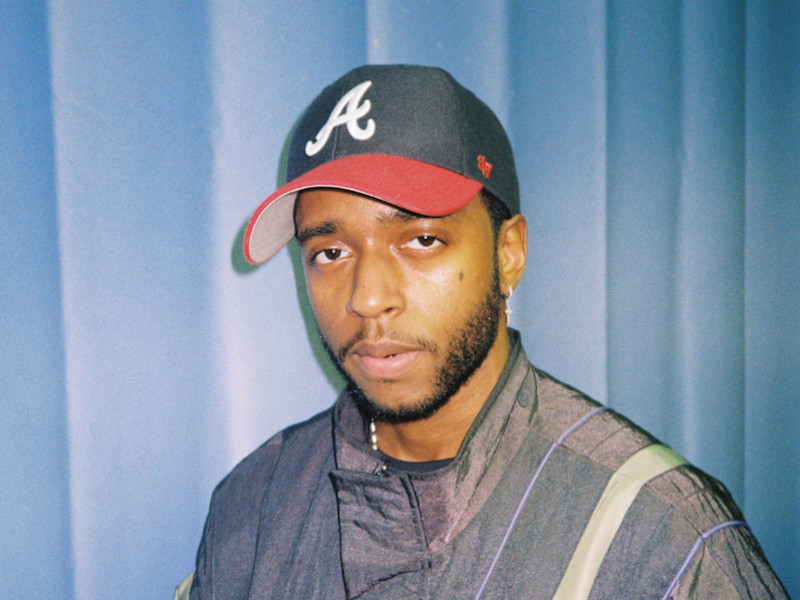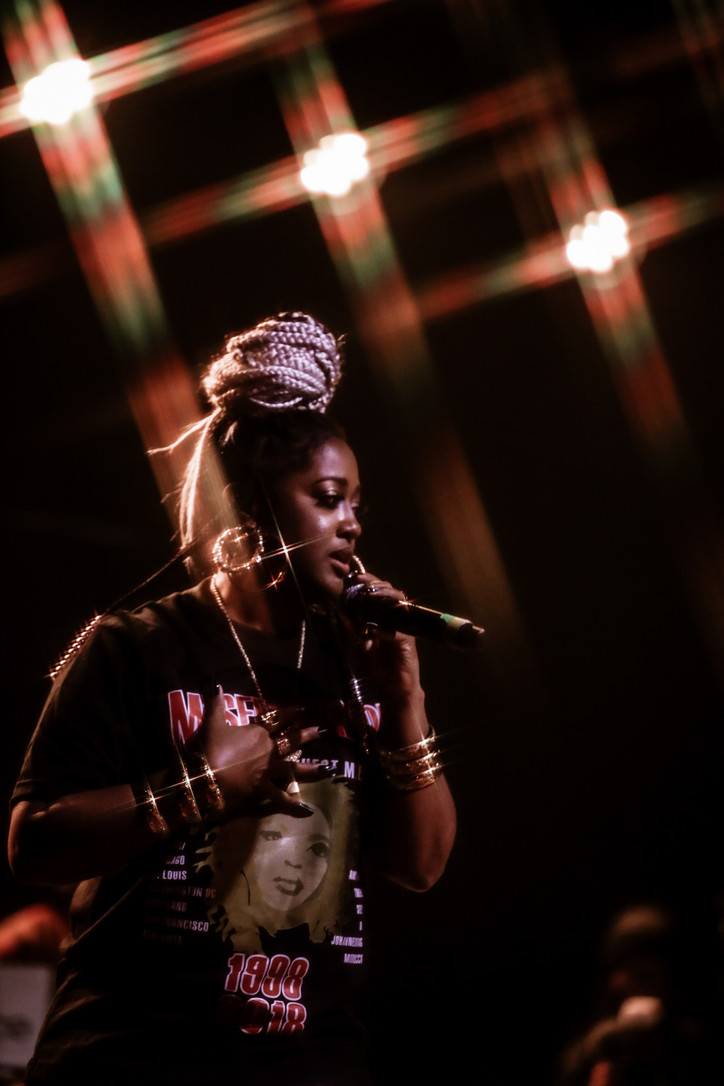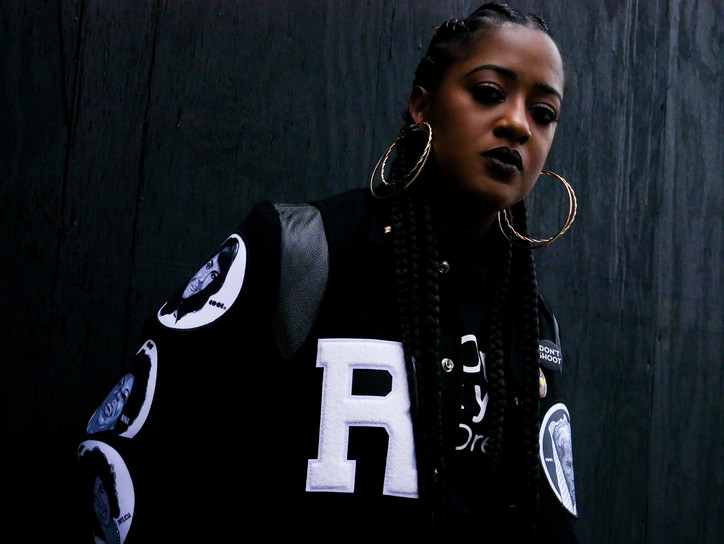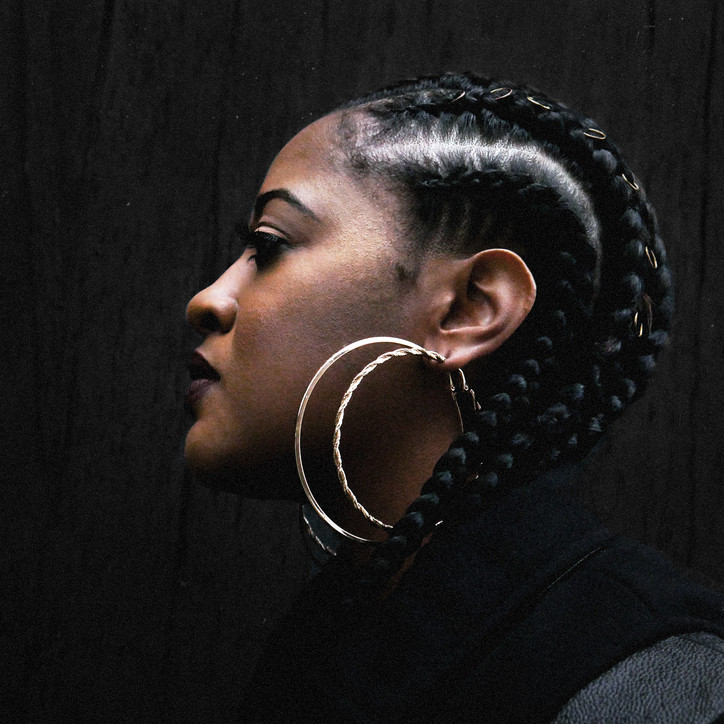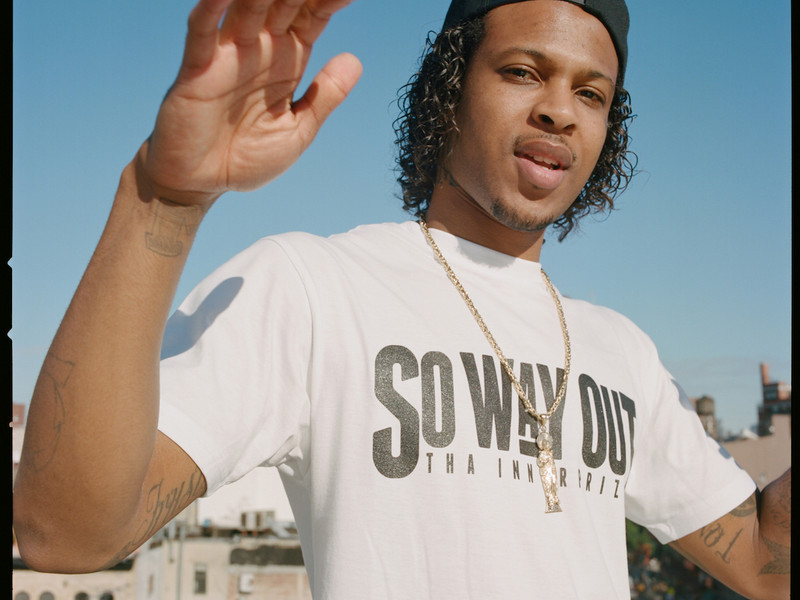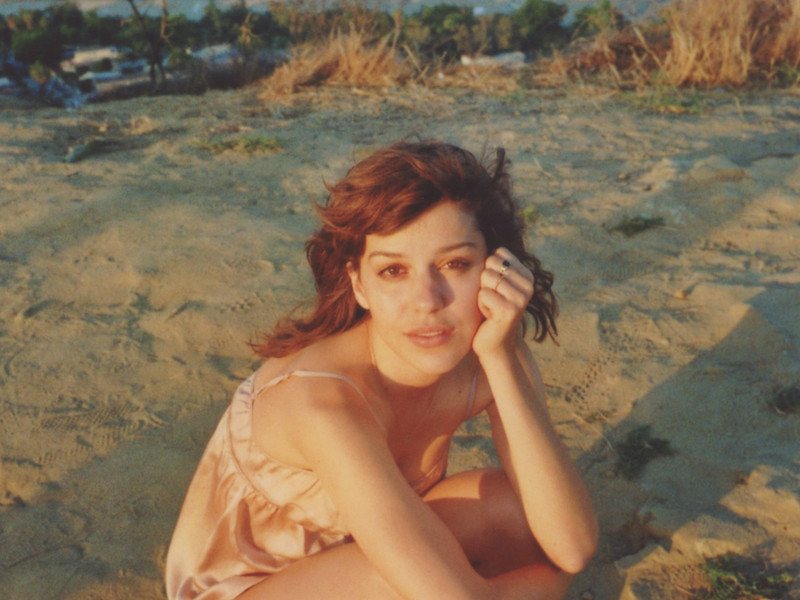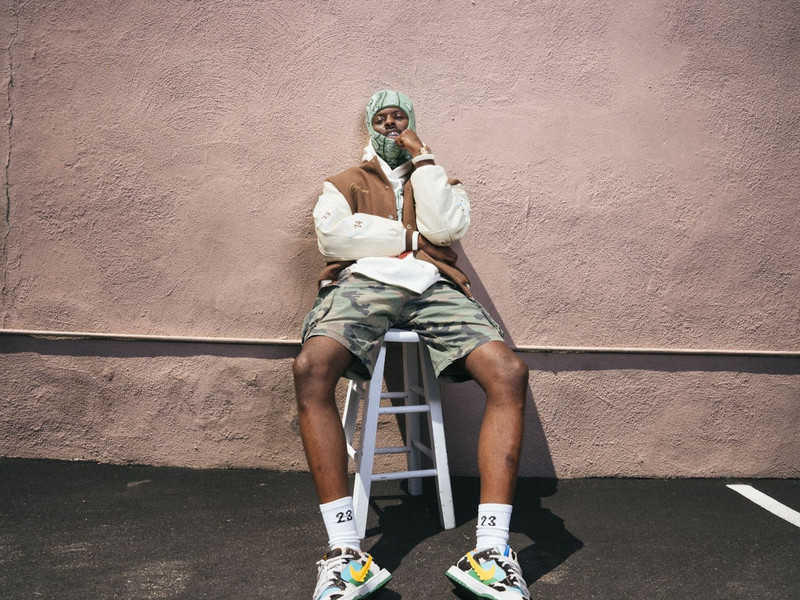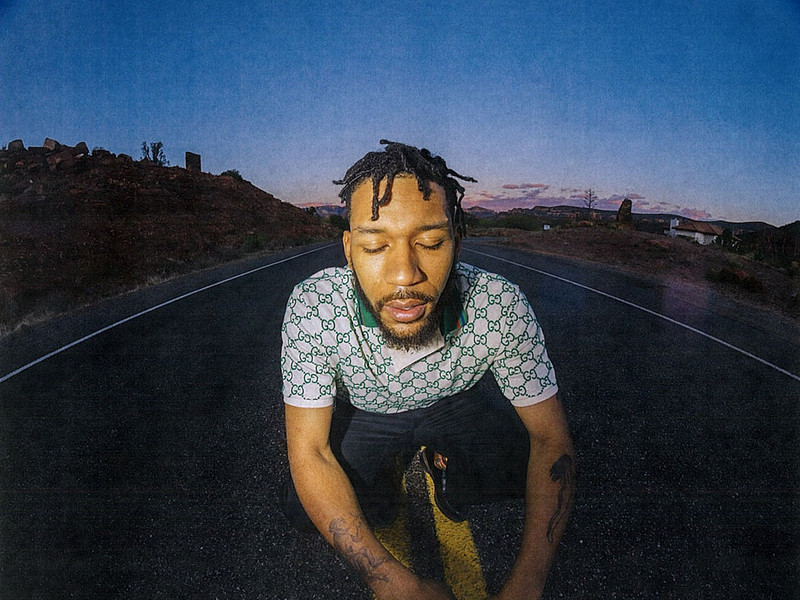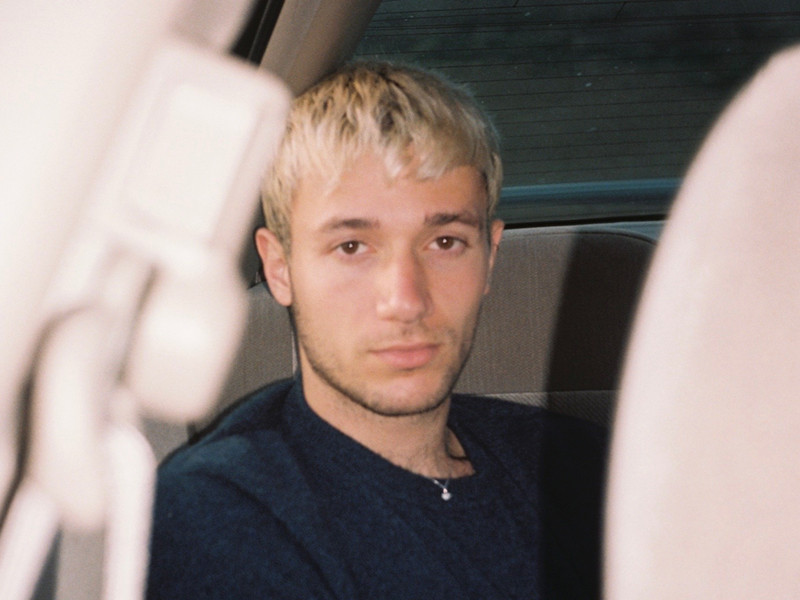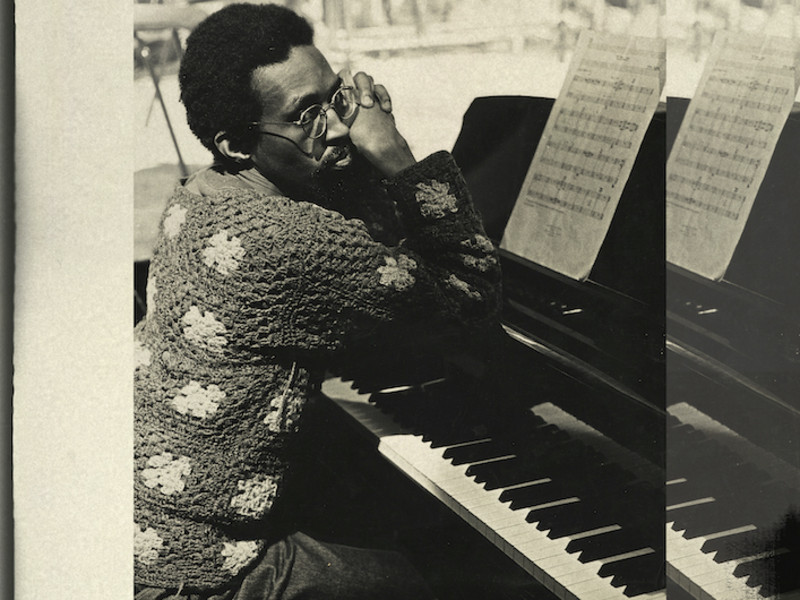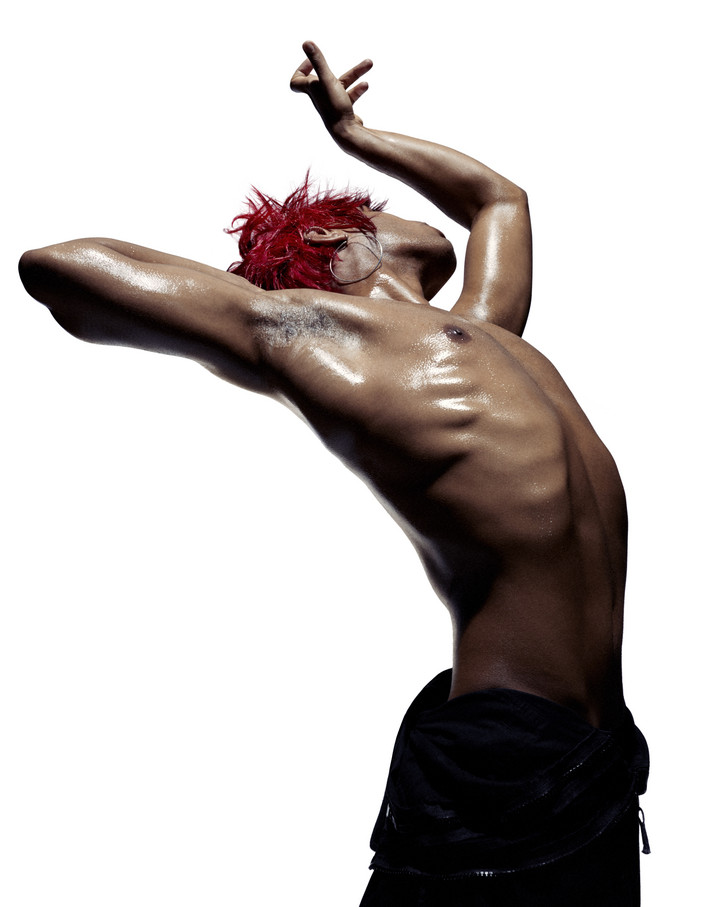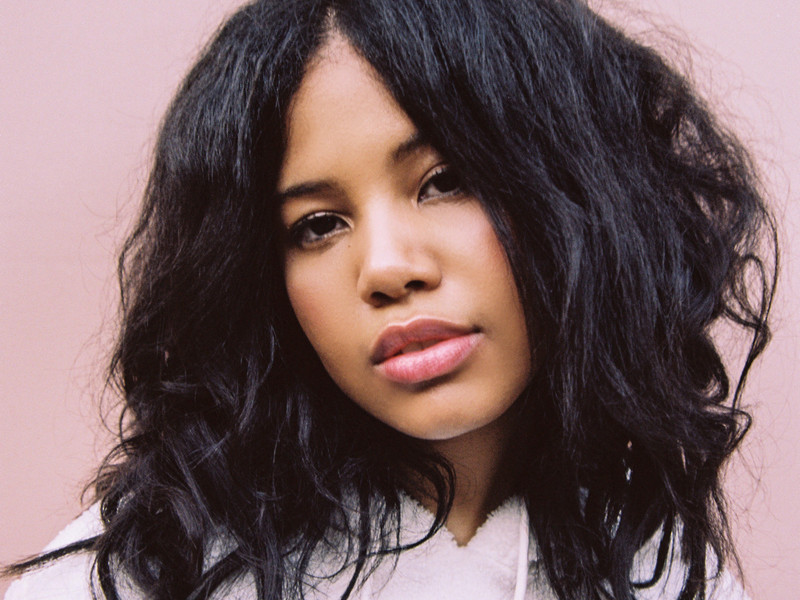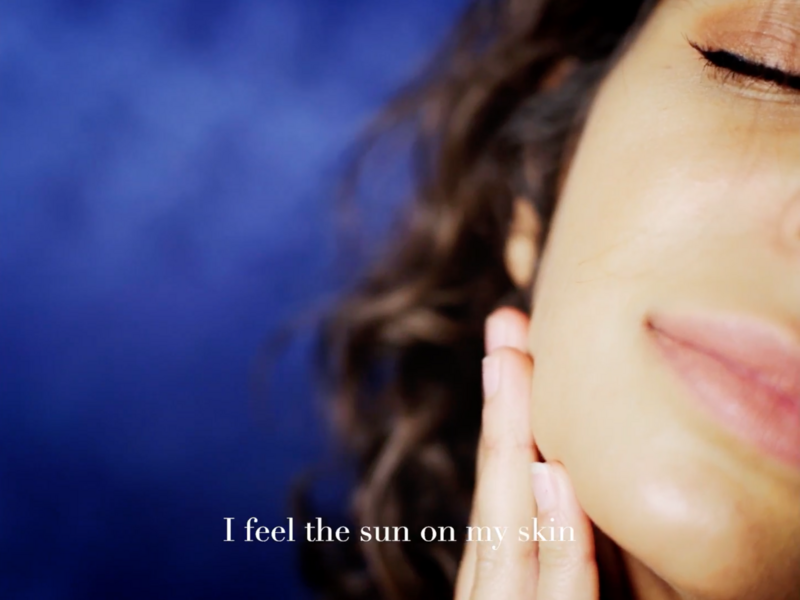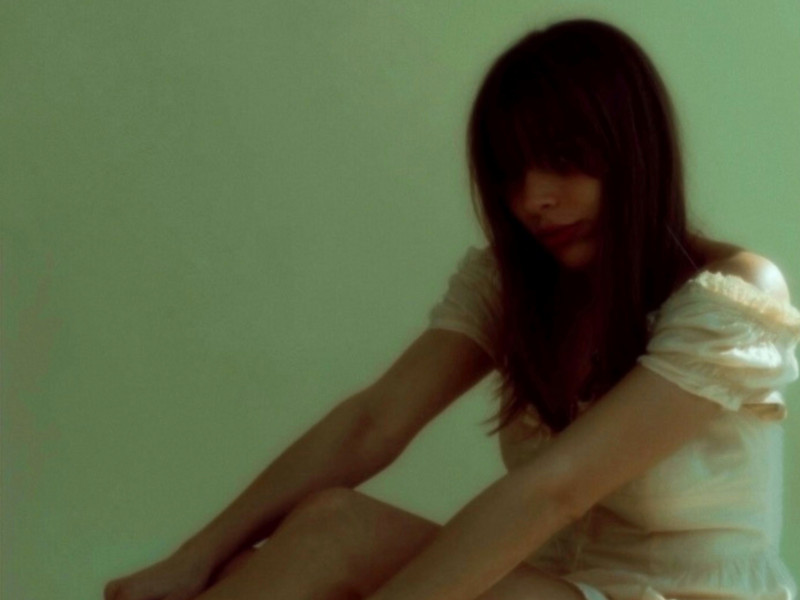What’ve you been up to since Eve came out back in August?
Since Eve came out, I’ve been super busy. It’s been nonstop, whether it’s been doing press and promos, shooting videos—I just did a seven-week tour with Big K.R.I.T. So you know, that’s been like the main thing, rehearsing with the band. We did the BET Hip Hop Awards performance. We’re just really trying to showcase the art in as many different creative ways that we can, as well as starting on the next project too. I’m still trying to create in between working and do all the leg work of just making sure that the music is exposed in all the right places, so it gets to all the people that we can touch.
Your vocals are so raw and powerful. Can you talk a little about how you curated your sound to get to where it is now?
Finding my sound and my voice was a real process. When I started out early on, if you go back and listen to my earlier projects, my voice was a lot more high-pitched. I didn’t have as much control, as in breath control and making sure I put inflections on certain words. So with mastering the art, the craft and the science of rhyme, I found the right tone and my voice that showcases the confidence, but still allows me to play with it to make different records unique depending on the story I’m trying to tell. I’ve learned a lot about breathing and even allowing the beat itself to breathe. It’s also about lyrical dexterity. Once you get all those things together, it all adds up towards creating your own sound that’s unique to you.
Touching on lyrical dexterity, you’ve mentioned in a previous interview how you found inspiration for the song “Whoopi.” You know, you were listening to the beat and thought to yourself that the beat could “make a sister act up.” So building off of that, what’s your song writing process like after you get that initial spark of inspiration?
Every song that I create is different. Specifically talking about “Whoopi,” I got in the booth and just thought about who the song reminded me of and about how I wanted to creatively portray that without being too dead-on—I just kind of got to the mic and freestyled the hook first. I didn’t write, and I was like let me just see what comes out. And you know, the first thing that comes out is, “They gon' make a sister act up. Turn my attitude back up.” So I realized I could play with Sister Act and the words.
After I had the hook down and the energy I wanted for the song, it was about finding the cadence. So you know, no words, just mumbling, like finding how you want your voice to flow as an instrument. You find the rhythm and how that meshes. A lot of songs that I do, I could say across the board, I find the cadence first and then plug the words in.
Do you practice freestyling?
[Laughs] I do. I’ll tell people that I’m not the best freestyler in the world, like everybody has their strengths. Some people are great freestylers, and they might not be as strong at songwriting, but I’m the opposite. I love to pin things, and I’m not as strong at freestyling—but it’s something I’ve always worked on, because I’m such a fan of the culture, and that’s such a big part of it. As the MC, you have to at least know how to freestyle at a bare minimum. So whether I’m in the car, the studio or in the shower, I’m always freestyling. I get with my label mates, and we’ll just have fun and have cyphers. Some days are great, and some are not, but it also helps me creatively when I’m really trying to work on a song. It’s something I’m a lot better at than I used to be. I’m at the point where if I go to a radio station, I might freestyle, but I wouldn’t have done that before if I didn’t have it written and already prepared. But it’s part of the culture, so I gotta incorporate freestyling in my artforms.
With Eve, you had so many renowned artists featured on this album. Did they have a hand in the creative process, or did it stick closely with your initial vision?
It was amazing to create with everybody. For this project, the artists’ celebrity didn’t necessarily matter to me. It was all about who I felt would fit the record. For the most part, everybody that I reached out to came through, and nobody had to redo their parts. They got the concepts right away, and from what I heard, they delivered in the most perfect way. So that was really exciting, watching the idea start and blossom into hearing the person’s verse and just being like “wow.” And that’s exactly what I wanted.
The one that was most memorable for me was the one with Queen Latifah, because most people sent their verses in, but me and Queen Latifah, we really got to go in one-on-one and really create together. So, it was really an experience that we grew to be great friends over a couple of days, two or three days. Outside of my team, she was somebody who really left some expertise and advice in the creative process. She was like, “I think you can come up with a better album title,” about the original title that I had before I picked Eve. She helped with the second version of the hook for “Cleo,” which is different than the one on the album. She was like, “The hook is alright, but I don’t love it." So that made me go back and push the pen and write a better hook. I know how much she’s done for the culture, so I really respect her advice. She helped me a lot creatively outside of my team.
What was the original title for the album? Are you allowed to say?
We were gonna call it Alien.
Referring back to the title of Eve, would you consider yourself religious?
I’m definitely more spiritual than religious. I grew up a Jehovah’s Witness, you know. That’s the base and the foundation of my spirituality and what I believe, but I’m so open to learning about different faiths and religions. At the core of who I am, I believe there’s a higher power—that there are things that are common regardless of what religion you associate yourself with. I’m definitely a spiritual person, and I’m trying to learn more and more and trying to find truth through it all.
There’s so many thoughtful and heavy concepts in the album. What message do you want to send out to your listeners, in your own words?
For this album in particular, I want to highlight just the beauty and strength of women, how much we have to shoulder, how strong we are, how important we are to the community and the circle of life, and how we should be respected and protected—whether it’s your mother, your grandmother, your daughter, a best friend. I really want to bring people into the world of black women and how they live, but this is also something for everybody, whether you’re black, white, male, female. You know, you can find something in there to relate to or inspires you or something that you can attach a memory or feeling to in some way.
Have you always known that you wanted to use your art for a higher purpose?
I’ve always known in some way. The artists that I grew up listening to inspired me, like Queen Latifah and the “U.N.I.T.Y.” video—seeing how powerful that was and for her to demand respect in that way and seeing all these strong women behind her like MC Lyte and Lauryn Hill and what they represented. I’m a big fan of Phylicia Rashad and Cicely Tyson and the characters they play. They were always strong women and strong characters. Outside of celebrities and in the village I grew up in with my mother and my aunt, I watched my mother come home after working so hard everyday. These are the things I live and I see in life, and I’ll always want to use the microphone and the platform to talk about what’s real around me. That’s something I’ve always taken notice of and gravitated towards—stories I’ve wanted to tell. That’s always been a part of the fabric of who I am.
If you could go back in time, what advice would you give your younger self?
I would tell myself not to overthink it and to know that who you are is enough. I came in the game and tried to figure out how I fit in, and I used to overthink my records. But at the end of the day, just make dope art and touch people. Everything outside of that will come. I would say to allow myself to be ok just as I am and not feel like I have to have the same path and the same success story as everybody else. We’re all supposed to have different paths. So, that was something I stressed over way too much, and it made it hard to enjoy the process as much as I could have sometimes.
If you weren’t a musician, what would you be doing career-wise?
Wow, that’s hard to even think about. It’d have to be something to do with music or part of that culture. I probably would be doing something like marketing music, being behind the camera and directing videos, or working with kids in the arts. It would definitely have to be something creative.
What are you planning for your next move?
I’m back in the studio working on another album, not to give too many details too early—but there’s definitely another album coming out next year. Behind the scenes, I’m getting into writing, and trying my hand out with musicals and TV. I’ve had a couple opportunities come my way that I’m starting to work on, so hopefully things pan out. I want to expand myself as an artist outside of just creating music. I want to produce documentaries—that’s what I’m hoping to do next year as well.
Why do want to produce documentaries?
It’s just another creative way to tell stories and give voices to people that don’t necessarily have a voice. I met a lady in St. Louis while I was on tour with Big K.R.I.T. She had such an amazing story, and she was telling me about another woman that she met while going to visit the Martin Luther King museum in Mississippi, a woman who had been on the side on the street for 30 years protesting. I was like, “Man, why don’t people know these stories?” I have a platform. I have a voice, and I want to tell these stories.
